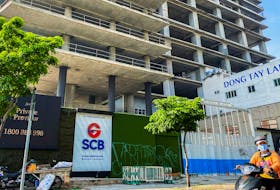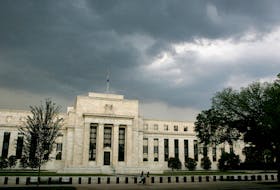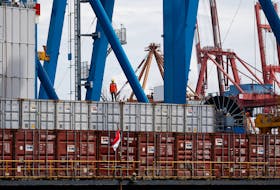By Rozanna Latiff
KUALA LUMPUR (Reuters) - Malaysia's economy grew faster than expected in the first quarter supported by a recovery in the agriculture sector, but weakening global demand and the U.S.-China trade war are seen raising risks for Southeast Asia's third-largest economy.
The economy grew 4.5% in the January-March quarter from a year earlier, Bank Negara Malaysia (BNM) said on Thursday, slower than fourth quarter growth of 4.7% but beating the 4.3% expansion forecast in a Reuters poll.
The slowing growth numbers, which came just a week after the central bank cut interest rates to boost the trade-reliant economy, are sure to weigh on Prime Minister Mahathir Mohamad's administration that just completed a year in power.
BNM Governor Nur Shamsiah Mohd Yunus maintained the central bank's full-year economic growth target at 4.3-4.8%, but warned of short-term risks.
"It is clear that downside risks remain in the immediate horizon, stemming mainly from external factors," she told a news conference.
Some economists said growth could take a further hit from softening internal and external factors.
"Growth is likely to continue slowing in the coming quarters," said Alex Holmes, Asia economist at Capital Economics, citing lower consumer spending and weaker exports.
Malaysia's exports contracted in February and March and is likely to face sustained pressure as the United States and China pursue another round of tariff increases. Malaysia is one of the most vulnerable countries to the U.S.-China trade war, being a large exporter of intermediary goods to China.
SPENDING SLOWS
UOB economist Julia Goh said a significant decline in public and private investment growth in the first quarter also weighed on Malaysia's growth prospects.
Public investment declined 13.2% in the first quarter, compared with a fall of 5.9% in the prior quarter while private investment grew a slower 0.4% from 5.8%. Private consumption, typically a big contributor to growth, also slowed.
The Mahathir administration has cut back on public spending, citing huge liabilities.
The stronger-than-expected GDP print and new measures introduced by the central bank to improve market liquidity and flexibility in currency hedging, gave the ringgit a lift. It rose 0.4 percent in early afternoon trade.
Last month, global index provider FTSE Russell said it would review Malaysia's market accessibility level in its World Government Bond Index due to concerns about liquidity, which hit the country's financial markets. Morgan Stanley said such a downgrade could see outflows of almost $8 billion from Malaysia.
The measures introduced on Thursday "will partly address some of the reasons for the possible (FTSE) exclusion and would enhance the accessibility of investors to the onshore hedging program", Governor Nur Shamsiah said.
Registered institutional investors can enter into forward contracts to buy ringgit beyond the current 25% threshold, while a wider pool of investors would also be allowed to participate in currency hedging, she said.
Furthermore, the central bank will look to improve ringgit liquidity beyond local trading hours, she added.
(Writing by A. Ananthalakshmi; Editing by Jacqueline Wong)









